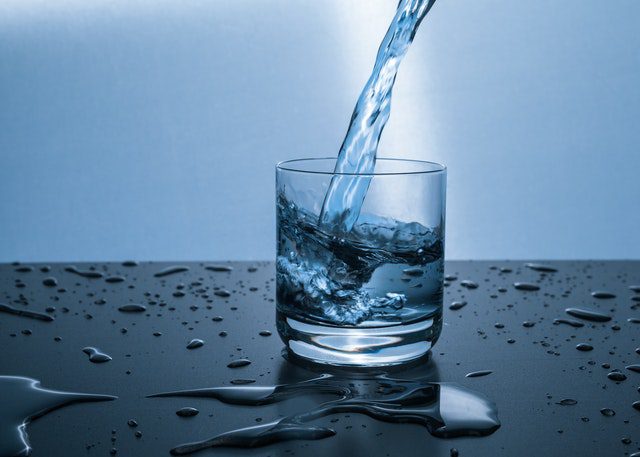Water is a vital resource that helps us thrive as living creatures. Healthy humans are endowed with the ability to sense when there is a need to increase water intake to maintain homeostasis and avoid severe dehydration. This ability is known as thirst. In short, when water loss surpasses water intake, osmotic pressure of extracellular fluid will increase and an antidiuretic hormone is released from the posterior pituitary gland. When both reactions occur, we experience the sensation of thirst. If we did not have water, we would no longer be able to function. Since we are constantly in the process of losing water through breathing, sweating, and other bodily functions, it is essential that we restore water in our bodies to stay hydrated and survive.
On average, a sedentary adult will lose 2–3 liters of water daily. Humans regulate water intake to maintain a healthy and proactive lifestyle and avoid dehydration. About 60% of an average person is made up of water, with that percentage wavering between 45% and 75% when age, sex, and hydration levels are accounted for. Humans’ entire composition relies on water intake. Water essentially allows for blood circulation and maintains vascular volume. On average, human adults need to drink 1.5 liters of water a day to stay properly hydrated. Since humans are omnivores and we eat a large range of foods with substantial water content, the amount of water required per meal or water-to-food ratio can vary. However, for the interconnected systems (e.g., reproductive, digestive, respiratory, circulatory, and peripheral nervous systems), major organs like the kidney and brain, and various tissues within the human body to function well, proper hydration is imperative. If dehydration sets in, humans can experience a wide range of ailments including speech incoherence, hypotension, and tachycardia.
Water makes up 80% of the human brain, making it essential for cognitive health. Recent studies lead one to value water more than perhaps they had in the past due to clear indications that brain volume is impacted by dehydration. Dickson et al., found in a study that, with healthy control subjects who lost 2.1–2.6% of body mass due to water loss, there was a direct correlation between dehydration and ventricular volume, with the dehydrated control group experiencing much larger ventricular volume than would a group of hydrated controls. It is important to note here that ventricular enlargement is a risk factor for cognitive impairment. Such a study is further evidence of the essential value of water to humanity.
Water acts as a thermoregulator, lubricant, and shock absorber. Because water has a large heat capacity, it is able to vaporize heat to cool down the body. When we sweat, evaporation of water from the skin’s surface allows us to cool down. In addition, water forms lubricating fluids (e.g., saliva, gastric and intestinal mucus secretion via the digestive tract), and acts as a shock absorber during strenuous workouts, as well as for a fetus who is surrounded by a water cushion in utero. Since water serves a range of purposes in our systems, and the organs within those systems, it is an indispensable resource.
In conclusion, water is a key resource for humanity as it aids with essential functions including systems homeostasis, shock absorption, cognitive processing, and other key bodily functions that humans cannot live without.





